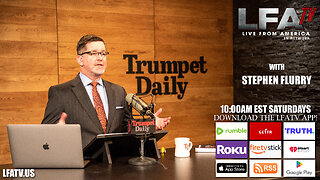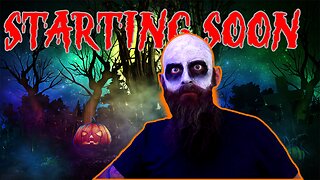Spiritual Liberty | Charles Spurgeon Sermon
Spiritual Liberty | C H Spurgeon Sermons | Audio Sermon
Spiritual Liberty
Charles Haddon Spurgeon February 18, 1855
Scripture: 2 Corinthians 3:17
From: New Park Street Pulpit Volume 1
"Where the Spirit of the Lord is, there is liberty."—2 Corinthians 3:17
Liberty is the birthright of every man. He may be born a pauper; he may be a foundling; his parentage may be altogether unknown; but liberty is his inalienable birthright. Black may be his skin; he may live uneducated and untaught; he may be poor as poverty itself; he may never have a foot of land to call his own; he may scarce have a particle of clothing, save a few rags to cover him; but, poor as he is, nature has fashioned him for freedom—he has a right to be free, and if he has not liberty, it is his birthright, and he ought not to be content until he wins it.
Liberty is the heirloom of all the sons and daughters of Adam. But where do you find liberty unaccompanied by religion? True it is that all men have a right to liberty, but it is equally true that you do not meet it in any country save where you find the Spirit of the Lord. "Where the Spirit of the Lord is, there is liberty." Thank God, this is a free country. This is a land where I can breathe the air and say it is untainted by the groan of a single slave; my lungs receive it, and I know there has never been mingled with its vapours the tear of a single slave woman shed over her child which has been sold from her. This land is the home of liberty. But why is it so? I take it, it is not so much because of our institutions as because the Spirit of the Lord is here —the spirit of true and hearty religion. There was a time, remember, when England was no more free than any other country, when men could not speak their sentiments freely, when kings were despots, when Parliaments were but a name. Who won our liberties for us? Who have loosed our chains? Under the hand of God, I say, the men of religion—men like the great and glorious Cromwell, who would have liberty of conscience, or die—men who, if they could not reach kings' hearts, because they were unsearchable in cunning, would strike kings low, rather than they would be slaves. We owe our liberty to men of religion, to men of the stern Puritanical school...
#SpurgeonSermon #Spurgeon #Puritan
********************************************************
Please Note: Whenever possible, please support the original content creator before supporting me. With that said, if you find value in the small service that I provide (i.e., searching out the Truth and directing my audience to phenomenal content and channels) and if you feel led...
Please Help Support "Clark Clips the Truth" Ministry:
Like. Share. Comment. Subscribe. Pray.
Venmo: https://www.venmo.com/u/ClarkClips
Patreon: https://www.patreon.com/clarkclips
Thank you so much and may God Bless You Abundantly!
********************************************************
Also, Please Support the Creator of This Audio Recording, "Koelsch Broadcasting Productions." Thanks and God Bless!
Source:
Prince of Preachers
Phone: (864) 404-1542
Koelsch Broadcasting Productions
5 Scottswood Rd.
Greenville, SC 29615
https://www.sermonaudio.com/solo/pop/sermons/101001111944/
CONTACT: https://www.sermonaudio.com/solo/pop/contact/
ABOUT:
We are a radio broadcast located in Koelsch Broadcasting Productions.
Charles Haddon Spurgeon (1834-92) was England's best-known preacher for most of the second half of the nineteenth century. In 1854, just four years after his conversion, Spurgeon, then only 20, became pastor of London's famed New Park Street Church (formerly pastored by the famous Baptist theologian John Gill). The congregation quickly outgrew their building, moved to Exeter Hall, then to Surrey Music Hall. In these venues Spurgeon frequently preached to audiences numbering more than 10,000—all in the days before electronic amplification. In 1861 the congregation moved permanently to the new Metropolitan Tabernacle.
-
 51:22
51:22
ZeeeMedia
7 hours agoMis/Disinfo Bill: Australian Senator Issues WARNING! - Senator Alex Antic
43.1K47 -
 1:30:19
1:30:19
Flyover Conservatives
23 hours agoPro-Life Advocate Facing 41 Months in Prison: Courageous Stand for Life and Faith - Bevelyn Beatty Williams; U.S. Debt Crisis Hits New High – Can It Be Fixed? - Dr. Kirk Elliott | FOC Show
29.5K5 -
 54:33
54:33
LFA TV
1 day agoSurvey: 28 Percent of Democrats Wish Trump Were Assassinated | Trumpet Daily 9.19.24 9PM EST
32.7K13 -
 49:12
49:12
Glenn Greenwald
1 day agoDems' Attacks on the Green Party, Israel/Gaza's Effect on 2024, and More with VP Candidate Butch Ware | SYSTEM UPDATE #337
58.2K82 -
 1:38:08
1:38:08
Donald Trump Jr.
12 hours agoMake America Healthy Again, Interview with Robert F Kennedy Jr | TRIGGERED Ep.175
136K179 -
 58:17
58:17
Josh Pate's College Football Show
5 hours agoWeek 4 Upset Alerts | Florida & Billy Napier Future | Biggest Vegas Movement | Cole Cubelic Joins
33.2K3 -
 1:00:00
1:00:00
The StoneZONE with Roger Stone
5 hours agoPennsylvania is the Key to Trump Victory - w/ Cliff Maloney of the PA Chase | The StoneZONE
50.1K8 -
 LIVE
LIVE
Tundra Gaming Live
12 hours agoThe Worlds Worst Horror Streamer Has Heart Attack Playing Phasmophobia
380 watching -
 6:33:42
6:33:42
MissesMaam
9 hours agoManager Ma'am 💚✨
64.2K4 -
 1:48:05
1:48:05
The Big Mig™
6 hours agoDHS -”5 Assassination Teams Actively Trying To Kill Trump”
86.2K17